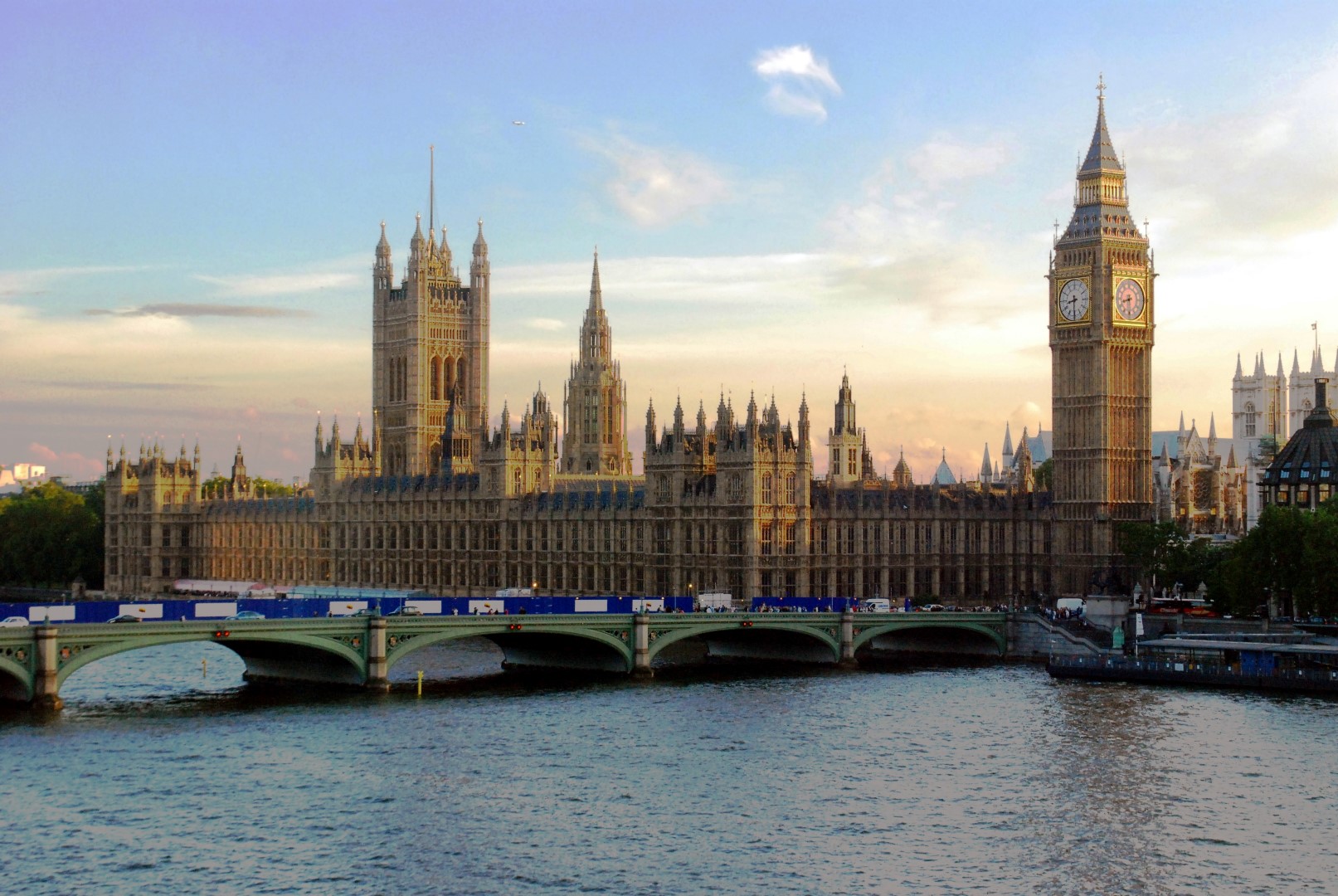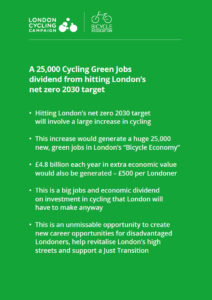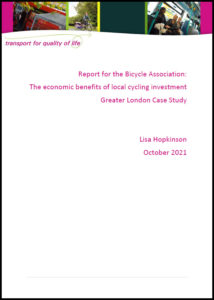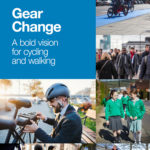Advocacy
The UK Cycle Industry Manifesto
The Bicycle Association, with support from the Investors in Cycling community, is proud to announce the launch of the BA Cycle Industry Manifesto.
Developed through an extensive industry-wide consultation process over Summer 2023, the Manifesto brings together cycle industry asks of Government ahead of the next general election – perfectly timed as policy teams in the main political parties are developing their own manifestos and action plans for the next Government.
Developed with the input of well over 100 BA members and Investors in Cycling, the Manifesto focuses on Government actions to support industry growth. This approach, focusing on jobs and economic growth potential, has already opened doors for the BA’s advocacy work following its high-profile launch at the House of Commons in mid-November.
Read or download the UK Cycle Industry Manifesto:
Download the Manifesto PDF here or if you prefer to read the Manifesto as single pages rather than as double-page spreads, please just download this version of the PDF.
The Manifesto notes the cycle industry’s full support for sustained, substantial investment in safe cycle infrastructure and other measures to promote cycling – and the benefits which that would deliver – but its key message is that alongside “cycling” (the activity) there is also a vigorous UK cycle industry providing jobs, economic benefit and growth potential. That’s something which can and will attract support from influential audiences who might not even consider cycling as within their remit.
Growing the local bicycle economy – starting in London
Central Government funding for cycling is increasingly moving towards a structure in which large ‘block grants’ are allocated to particular parts of the UK – often covering wide areas such as “transport” or “economic growth”. So as the era of centralised, cycling-specific funding may be passing, many of the investment decisions which would support cycle industry growth (rather than other projects, e.g. buses) will increasingly be taken at the regional, city-region and local levels.
The BA is now also working to bring together data, cycle industry and advocacy partners and policy makers to increase cycling investment on the ground, in what we call “The local economic case for cycling”.
Our first focus region, London, was mobilised in late 2021 and has provided valuable insights for other regions and BA projects.
Or for an audio introduction to the Local Bicycle Economy concept, play our podcast:
STEP 1: Commissioning research
The first step was to use our Market Data Service to inform research on the benefits of cycling investment to Greater London. The Bicycle Association commissioned a report from the independent research group Transport for Quality of Life which used this unique local and regional breakdown capabilities of the Market Data Service dataset to demonstrate that investing in cycling to the extent necessary to achieve London’s net zero carbon target would create:
The full report and evidence case can be downloaded here:
STEP 2: Joining with local industry and advocacy partners
These findings are eye-opening, and highly effective in putting the case for cycling investments. The most efficient way to put them to local decision-makers and political representatives is to team up with a local advocacy partner – and to leverage the expertise and passion of the people in the local cycle industry.
For the launch region, London, we are delighted to be working with the very well-established and well-connected London Cycling Campaign, alongside the extensive community of Investors in Cycling who operate cycling businesses in local communities across London.
STEP 3: Put the case to decision-makers
Under the headline:
we, representatives of the London cycle industry and our partners at LCC will be identifying and targeting decision-makers – and also supplying evidenced arguments and collateral for other cycle advocates who are working to build the case for public investment to grow cycling – be that at city, borough or even street level. The “elevator pitch” is shown opposite.
Together with LCC, we have also summarised the full London-specific case in the following briefing document:
Growing the local bicycle economy in London
The elevator pitch
An early political impact
Will Norman, the Mayor of London’s Walking & Cycling Commissioner, has already Tweeted with a link to our report:
STEP 4: Using the case to win specific investments
Our cycle industry colleagues and advocacy partners will identify particular projects where they’ll be able to use our data to bolster their case, help overcome local opposition and sway decisions towards bold infrastructure investment to grow cycling. We’ll soon expand this section with case studies.

STEP 5: Roll out to other cities and regions
We aim to bring this powerful logic for change to every region in the UK, by bringing more organisations into the Investors in Cycling community to resource the roll-out, by finding new partner organisations in each region and by leveraging the active engagement of local Investor companies, to deliver cycle market growth nationwide.
The national economic case for cycling
Policy makers care deeply about economic contribution and jobs, so at the heart of the BA’s advocacy work has for several years been what we call the “economic case for cycling”. As the industry association, the BA is uniquely placed to make this case.
Evidence of the UK cycle industry’s economic contribution is essential for our credibility. That’s one of the main reasons we developed the BA Market Data Service to gather superbly accurate and detailed sales data for the UK.
A second pillar of evidence was commissioned in 2017 by the BA from respected consultancy Transport for the Quality of Life. They delivered a foundational piece of research to quantify the economic contribution of our industry. They showed this to be at least £5.4 billion/year, supporting 64,000 jobs – making cycling bigger than the steel industry – and this was widely picked up by national and specialist media. Download the report here.
This was updated in 2023, with a new report: The UK cycle industry: current economic and employment benefits and decarbonisation-driven growth potential – click to download. This updated the annual ecopnomic contribution figure to £7.5 bn – and forecast the scale of jobs and industry growth which would result if cycling were to grow to the levels necessary to meet the Government’s published climate change targets.
The “economic case”, together with our “trusted advisor” approach (see “Principles” below) have been remarkably successful, and we now have access to and close relationships with both politicians and officials at the highest levels of Government, and especially within the Department for Transport.
A key success came with the publication of Gear Change in July 2020 – in which the Government committed not only to spending £2 bn on cycling (largely for infrastructure) but also to implementing many of the items for which the BA has consistently advocated: a national e-bike incentive scheme, support for cargo bikes, action on cycle theft and more.
However, subsequent political announcements have made it clear that the battle for secure, sustained and long-term funding is never won, so we must, with our advocacy allies, keep up the pressure on Government to deliver the funding to make a meaningful change in UK cycling.
Advocacy mission and principles
Our advocacy mission
The BA works to a clear, focused strategy based around three key ‘pillars’:
- Securing a strong, united and influential industry
- Giving every child the opportunity to cycle
- Making cycling an everyday choice.
Every BA activity is driven by one or more these pillars, and to ensure our focus is on activities with member benefit, all activity must also be unique (something the industry can deliver collectively which others advocating for cycling cannot) and measurable. It must also either directly drive members’ businesses and profits, or have long-term strategic value.
Partners
The BA was instrumental in the formation of the Walking and Cycling Alliance, where we co-ordinate advocacy work with British Cycling, Cycling UK, Sustrans, Living Streets and The Ramblers. The BA also works with many more cycling, Governmental and other organisations.
Internationally, the BA is a long-standing member of the Confederation of the European Bicycle Industry (CONEBI) and is a founding member of Cycling Industries Europe (CIE). Through CONEBI we are also represented at the World Bicycle Industries Association (WBIA).
Principles
Our aim: to grow cycling
This will get more people on bikes. Everyday cycling trips – for ‘transport’- is the growth segment.
Our representation: the whole UK cycle industry
We speak with one voice. We are a non-profit group, with no commercial interests.
Our target: Westminster and Whitehall
We are not a consumer-facing organisation. We don’t have the large financial resources necessary to promote cycling to the general public.
Our focus: is on issues that only the BA can address.
We have partnerships with other groups – see below – and work closely with them. We don’t try to replicate the work that they do already.
Our issues: the BA can advocate only for issues on which our members all agree.
But we can inform, advise and facilitate discussion on a wide range of topics.
Our stance: the BA makes well-reasoned proposals as advocates
We do not lobby or seek or take funds from government or third parties or any commercial interests.
Our reputation: we aim to be objective, rigorous – that’s why reliable market data is key – and to be a critical and trusted adviser of government.
Working areas and policies
The latest policy thinking from the BA is laid out in the UK Cycle Industry Manifesto, but the headings below also link to additional online resources and may be useful references. Click any heading to read more about the BA’s advocacy work and policy positions:
Our influence
Advocacy timeline
BA puts cycle industry on the political agenda with Manifesto launch in House of Commons
A high-profile launch at the House of Commons marked the launch of the UK Cycle Industry Manifesto, aimed at building policies for industry growth into party policies ahead of an expected 2024 General Election. RESULT: Over 30 MPs and Lords attend, and contacts made with key policymakers across the political spectrum.
March 2022
RESULT: the Government remains on track with their commitment, made in Jan 2020 after direct BA intervention, to roll out the Bikeability programme, with a new £20m funding announcement.
November 2021
RESULT: Government invites tenders for an £8m “National e-cycle support programme”, including try-before-you-buy opportunities, long term e-bike loans and provision of e-bikes to access education and employment.
October 2021
RESULT: Despite intense public finances pressures, Budget & Spending Review announcements confirm “Gear Change” £2 billion spending on cycle infrastructure is still on track – some allocated via regional transport funding packages.
August 2021
RESULT: New £400k fund for businesses to purchase e-cargo cycles is announced, covering up to 40% of the cost per cycle
July 2021
RESULT: a further £1.2 million is made available for local authorities for e-cargo bike schemes, including try-before-you-buy and logistics projects.
June 2021
April 2021
RESULT: Government announces doubling of Bikeability funding, every child to be offered cycle training. BA had engaged one-on-one with the Minister ahead of this committment being made in the 2020 Conservative election manifesto.
March 2021
The final £15m batch of the “Fix your bike” repair vouchers is released, completing delivery of the scheme which was originally announced in May 2020
January 2021
Bike shops again remain open as ‘essential’ during the third national COVID lockdown, in line with assurances obtained by the Bicycle Association.
December 2020
BA liaises with DIT and DfT and informs members on Brexit developements, ADD, 25% USA tariffs. RESULT: BA members receive earliest possible info and analysis as Brexit transition end approaches
BA cycle security proposals to be taken forward by police cycle crime lead RESULT: Voluntary and vendor-neutral approach agreed
BA engages further with DfT and the devolved administrations on potential future e-bike and e-cargo bike incentive schemes, and establishes that these will be worth at least £11m in the next 12 months
November 2020
Minister and senior officials speak at BA Conference. BA engages with DfT ahead of spending review, with proposals for e-bikes and e-cargo, supported by Market Data Service.
Bike shops remain open as the second national COVID lockdown comes into force, in line with assurances previously obtained by the BA.
October 2020
BA launches industry sustainability initiative and publishes commissioned research.
September 2020
BA lobbies to secure cycle shops essential status ahead of possible future lockdowns in England and Wales. RESULT: Assurances received and open status maintained.
Plus: Scotland announces £500m over 5 years for cycling & walking, BA mediates Cycle to Work discussions, work starts on cycle parking standard
August 2020
BA has been working for over a year on cycle parking and security. RESULT: Funding secured via CRWG for UK cycle parking standard development.
BA reacts to correct media mis-reporting of Simon Cowell’s injuries after an e-motorbike incident (not an e-bike) RESULT: highest traffic ever on BA website.
July 2020
RESULT: Government announces “Gear Change” policy document with £2 billion over four years for infrastructure (with quality standards), e-bike incentive commitments and more
Fix Your Bike voucher scheme releases first batch, BA provides evidence to Commons e-scooter enquiry, BA submits response to DfT’s Future of Transport Regulatory Review
June 2020
BA Market Data Service goes fully live. DfT straight away requests retailer servicing data to support Fix Your Bike scheme RESULT: BA influence immediately boosted by data availability
May 2020
RESULT: Government announces £250m emergency active travel fund for pop-up infrastructure
RESULT: Government announces £25m Fix Your Bike repair voucher scheme for England.
April 2020
Package of proposals: BA developed and proposed to Govt a package of measures to support COVID use of bikes for transport inc. pop-up lanes, e-bike incentives, VAT, repair vouchers
March 2020
Lockdown: BA immediately lobbied for essential status. RESULT: Government guidance ensures bikes shops can stay open, cycling for exercise encouraged even under strict lockdown. Enabled an extra £0.5 billion boom in cycling this year.
Supporting open shops: BA launched high traffic COVID Hub on website with industry info, plus offered free legal/HR support, developed Open Bike Shops finder with ACT and supported Bikes4KeyWorkers
Pop-up infrastructure: BA lobbied hard with WACA allies to secure Government support.
February 2020
BA had been in contact with Northern Ireland officials for some years about the status of e- bikes in that territory. RESULT: E-bikes are to made legal in Northen Ireland
E-scooters: BA worked with numerous stakeholders to develop a ‘sensible’ UK specification proposal for e-scooters to ‘play well’ with bikes and e-bike
January 2020
Bikeability: Direct BA lobbying at Ministerial level had secured an election manifesto commitment to expand the Bikeability scheme
RESULT: DfT announces Bikeability roll-out cycle training to all children worth £80-100m in this Parliament
New Minister: BA secured an early meeting to explain industry priorities after the post-election re-shuffle saw a new Transport Minister come into post






